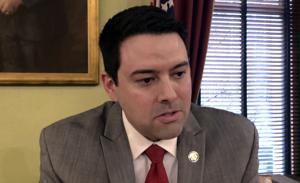Ohio Senate passes bill to gain oversight over public health emergency orders

(The Center Square) – The Ohio Senate has voted for the second time in two months to limit Gov. Mike DeWine’s authority to issue emergency orders and give the Ohio Legislature more power to control how the state responds to crises similar to the COVID-19 pandemic.
The Senate and House passed a similar bill in December that DeWine called dangerous before he vetoed it. Now, it needs passage in the House to go back to the governor.
A similar bill in the House had its second hearing in the House State and Local Government Committee on Wednesday, with more than 150 witnesses providing supporting testimony.
“I am thankful to my colleagues for fighting to restore the natural separation of powers through reasonable checks and balances even during a public health emergency,” Sen. Rob McColley, R-Napoleon, said Wednesday after Senate Bill 22 passed. “This is consistent with the separation of powers in place in 34 other states, including all of our neighboring states.”
Bills continue to work through the Indiana Legislature that call for limiting Gov. Eric Holcomb’s executive authority, while in Kentucky the matter is in court.
Kentucky Gov. Andy Beshear vetoed five bills that gives the Kentucky Legislature oversight over emergency orders. Lawmakers easily voted to override those vetoes, but Beshear went to court and won an injunction to at least temporarily keep them in place.
McColley’s Ohio bill would establish a bipartisan Ohio Health Oversight and Advisory Committee, with members from the House and Senate. The committee would provide legislative oversight for actions taken by the governor and the Ohio Department of Health during a statewide public health emergency.
That committee, according to bill co-sponsor Sen. Terry Johnson, R-McDermott, could help the state handle things similar to the COVID-19 pandemic better.
“This bill will go a long way toward strengthening our ability to respond to health emergencies in Ohio,” Johnson said. “It in no way limits a governor’s timely response to health crises. It simply ensures that the direct representatives of the people of Ohio – their state representatives and senators – have meaningful input into the process.”
The bill also would allow the General Assembly to adopt a resolution to terminate a public health state of emergency after 30 days, and it could rescind a related order or rule 11 days after the first emergency declaration.
Disclaimer: This content is distributed by The Center Square



